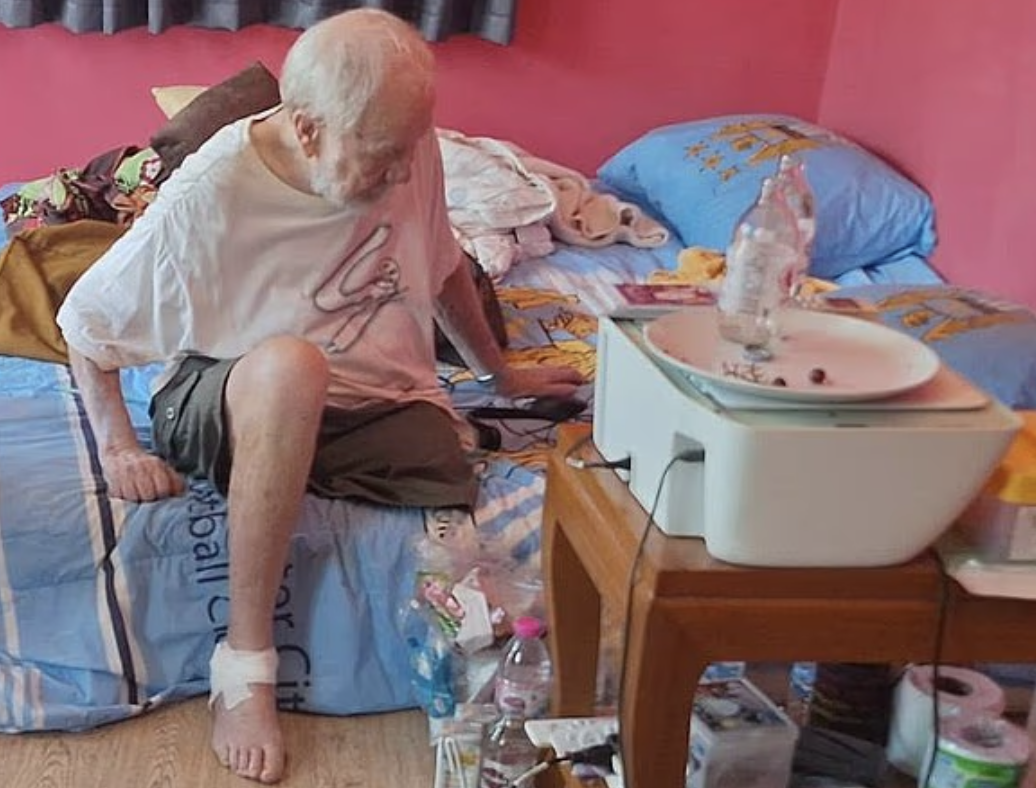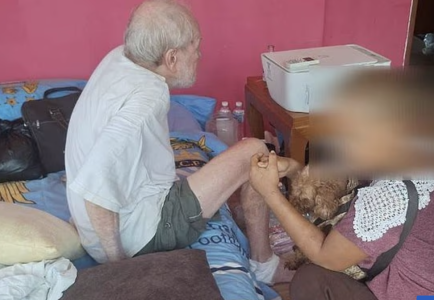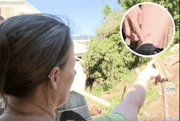
The desperate voice of a 75-year-old Australian man echoed across social media last week, pleading for help to return home from Thailand after his wife spent their life savings on drugs.
But Marcus's story, while heartbreaking, is just the tip of an iceberg threatening thousands of Australian seniors both at home and abroad.
On 13 August, immigration police in Udon Thani took Marcus under their care and coordinated with the Australian embassy to organise his return.
Embassy officials confirmed they were ready to provide assistance, with the Mayor of Ban Dung Municipality arranging an ambulance to transport him to Bangkok.
Yet Marcus's rescue comes at a time when financial abuse affects 6.8% of Australian seniors, and romance scammers are targeting vulnerable older adults with unprecedented sophistication.
The question isn't just how to help Marcus–it's how to prevent the next tragedy.
Marcus's story reads like a cautionary tale many Australian families recognise.
Marcus, who lost his left leg in a car accident, had relied on his Thai wife Pikun as his primary carer and entrusted her with managing his finances after moving to live with her in Udon Thani.
But she became addicted to methamphetamine and burned through his $189,000. He now has only 1,500 baht ($72) to his name.
After being married to his 45-year-old Thai wife Phikul for more than a decade, Marcus moved permanently to Udon Thani following an accident. Having once been worth millions, he was left with nothing after his wife's drug addiction spiralled out of control.
'My pension and over 4 million baht from the sale of my Bangkok townhouse were entrusted to my wife for monthly expenses, but it all disappeared when she became a drug addict.'
Experts say this pattern is common: trusted partners or family members gain access to an older person's finances and exploit that trust, often leaving the victim stranded and destitute.
'These scams are particularly vicious and exploit the basic human emotion of wanting to connect and find love – it is heart-wrenching stuff.'
The tragedy isn’t unique to overseas relationships. Seniors who suffer financial abuse collectively lose over $2.6 billion every year, and financial abuse victims are 300% more likely to die prematurely than those who suffered no abuse.
While Marcus faced his wife’s methamphetamine addiction in Thailand–a country battling an estimated 1.1 million drug addicts–older Australians at home are dealing with their own epidemic of financial exploitation.
In 2024, Australians reported losing $23.6 million to dating and romance scams. People aged 55 and over lost more than $12 million, while those 65+ reported $99.6 million in total scam losses.
The numbers only tell part of the story. In one recent operation, the Australian Federal Police contacted more than 5,000 potential victims of romance scammers based in the Philippines, with the majority being older men.
Recognising Financial Abuse Warning Signs
• Sudden changes to bank accounts, wills, or power of attorney
• Unpaid bills despite adequate income
• Withdrawal from social activities or friends
• New ‘friends’ showing unusual interest in finances
• Unexplained withdrawals or transfers
• Secrecy about new online relationships
Marcus’s case highlights the added risks facing Australian seniors living abroad or pursuing overseas relationships. Romance scams specifically target older widowers, divorcees, and those who feel isolated, often moving victims onto encrypted messaging apps to avoid detection.
Consular services can help, but assistance is limited. Australians in Thailand can call the Consular Emergency Centre in Canberra on +61 2 6261 3305, or 1300 555 135 within Australia, for urgent help.
Marcus’s story took a hopeful turn when a businesswoman from Sisaket province, Supatra Nisanoff, offered to buy his plane ticket home after seeing news coverage. The gesture, worth 20,000-30,000 baht, shows how community support can provide lifelines to vulnerable seniors overseas.
Essential Emergency Contacts:
• Elder abuse helpline: 1800 ELDERHelp (1800 353 374)
• Consular Emergency Centre: 1300 555 135 (AU) / +61 2 6261 3305 (overseas)
• Report scams: ScamWatch.gov.au, ReportCyber.gov.au
• Crisis support: IDCARE 1800 595 160 (identity recovery service)
• Contact your bank immediately if money is transferred fraudulently
Modern scammers exploit technology in increasingly sophisticated ways. Romance fraudsters push victims off dating apps and onto encrypted platforms like WhatsApp and Telegram.
Some now even use AI-generated deepfake videos and cloned voices to deceive victims.
Did you know?
Australians aged 45-64 have reported the highest romance scam losses in recent years, totalling more than $18 million–63 per cent of all reported romance scam losses.
Due to privacy reasons, the Department of Foreign Affairs and Trade would not comment further on Marcus’s case. The pensioner said he was desperate to return to Australia and wanted nothing more to do with Pikun, who is currently in a drug rehabilitation centre.
After losing his leg in the accident, Marcus sold his Bangkok property for $189,000 and entrusted the money to Pikun. Her alleged addiction to methamphetamine—known locally as yaa baa, literally meaning 'crazy drug'—then took over, and Thai media reported she spent it all on substance abuse.
Reports also claimed the couple’s son was addicted to meth.
Pikun’s mother, Ting, admitted her daughter used drugs but maintained that she still loved her foreign husband.
Marcus’s eventual rescue demonstrates that support systems work when activated. His case united local leaders, immigration police, and the Australian embassy–proof that vulnerable Australians overseas are not forgotten.
But prevention remains key: vigilance, education, and proper safeguards remain the strongest defence.
The tragedy of Marcus’s downfall is a stark reminder that financial abuse doesn’t discriminate. Even intelligent, capable people can fall victim when they trust the wrong person at a vulnerable moment.
For anyone who has experienced financial abuse or knows someone who has: remember, falling for a scam is not weakness. These are highly sophisticated manipulations. Victims deserve compassion, not blame.
Read more: Online romance tricks Aussie grandma, nearly lands her in prison
Original article
Australian government to help pensioner, 75, who begged to be rescued from Thailand after his wife squandered fortune on drugs
https://www.dailymail.co.uk/news/ar...e-Thailand-wife-squandered-fortune-drugs.html
Thailand cave rescue | Australian Government Department of Foreign Affairs and Trade
'On 13 August, immigration police in Udon Thani took Marcus under their care and coordinated with the Australian embassy to organise his return.'
https://www.dfat.gov.au/crisis-hub/thailand-cave-rescue
National Elder Abuse Prevalence Study: Final Report | AIFS
'Financial abuse affects 6.8% of Australian seniors.'
https://aifs.gov.au/research/research-reports/national-elder-abuse-prevalence-study-final-report
2025 Elder Abuse Statistics | The Senior List
'Seniors who suffer financial abuse collectively lose over $2.6 billion every year, and financial abuse victims are 300 percent more likely to die prematurely.'
https://www.theseniorlist.com/caregiving/elder-abuse/statistics/
Yaa Baa. Methamphetamine in Southeast Asia | ResearchGate
'The government struggles to reduce drug supply from Myanmar and Laos, with an estimated 1.1 million drug addicts, though the true number is likely much higher.'
How to avoid romance scams in Australia | SBS
'In 2024, Australians reported losing $23.6 million to dating and romance scams.'
https://www.sbs.com.au/language/eng...to-avoid-romance-scams-in-australia/98jgyfgyb
Consular Services - The Australian Embassy, Thailand
'People aged 55 and over losing more than $12 million, and those 65+ reporting $99.6 million in total scam losses.'
https://thailand.embassy.gov.au/bkok/Consular_Services.html
Have you or someone you know encountered financial abuse or suspicious online relationships? Your experience could help protect others in our community. Share your story or advice in the comments below.









